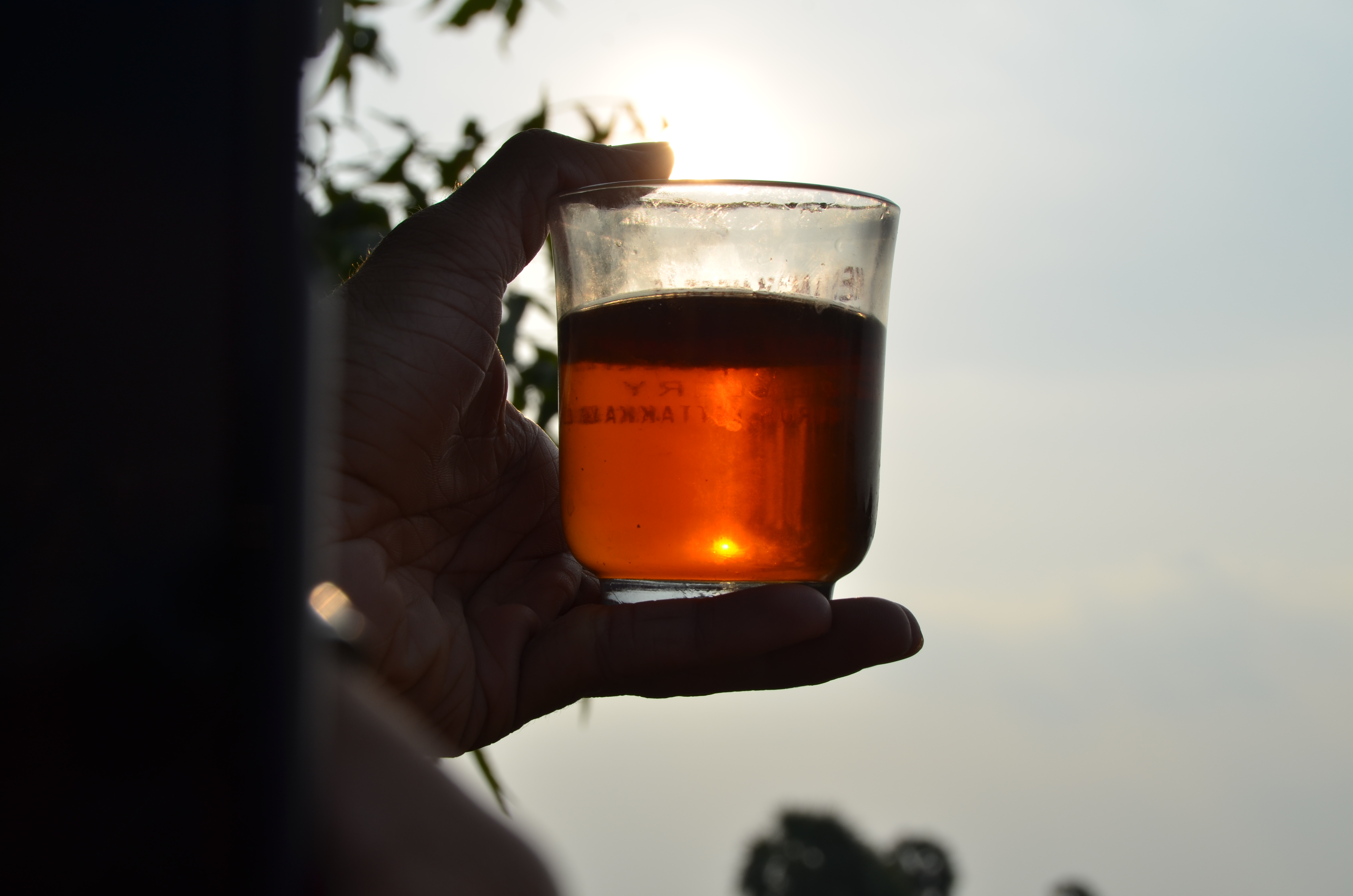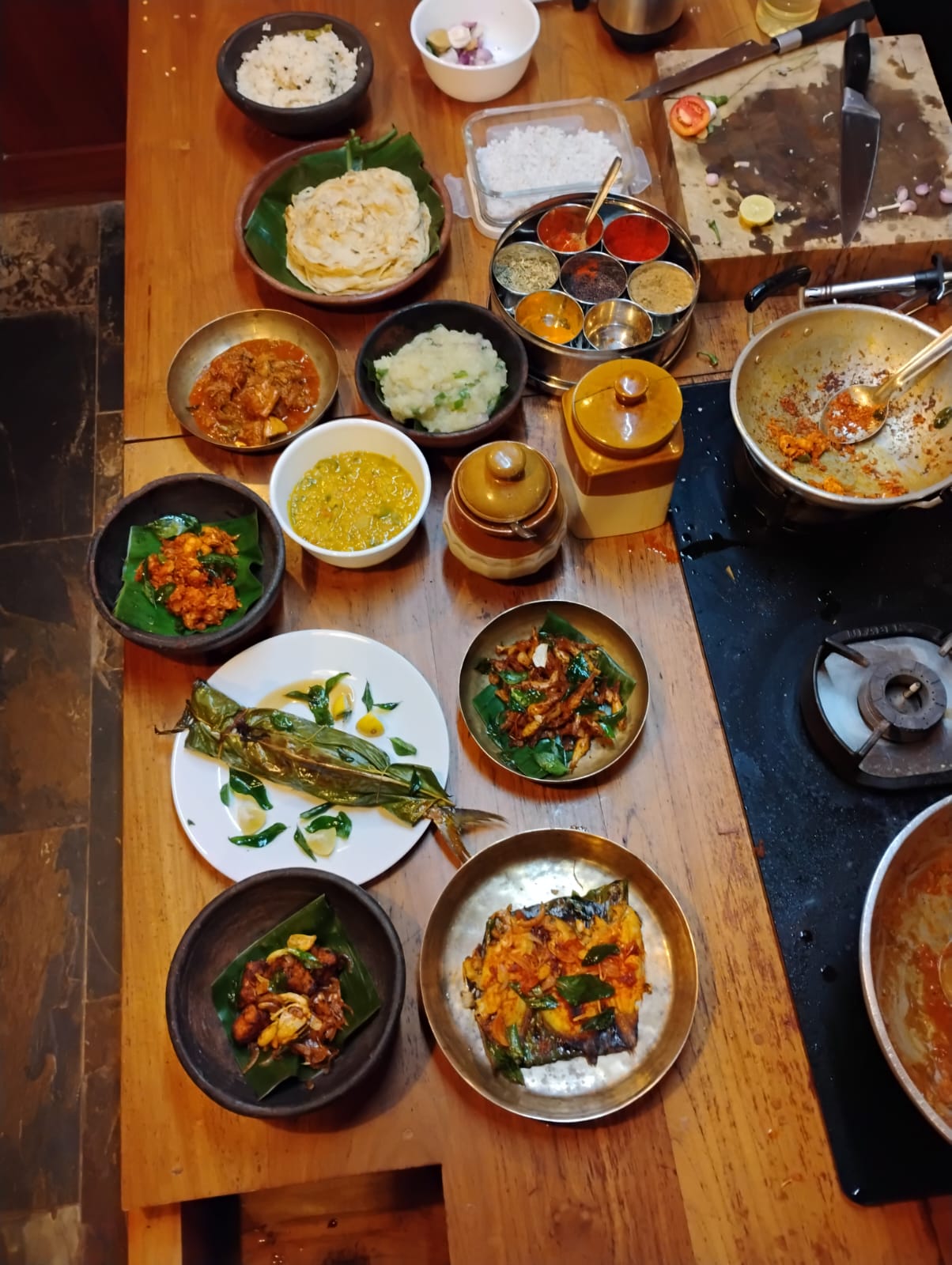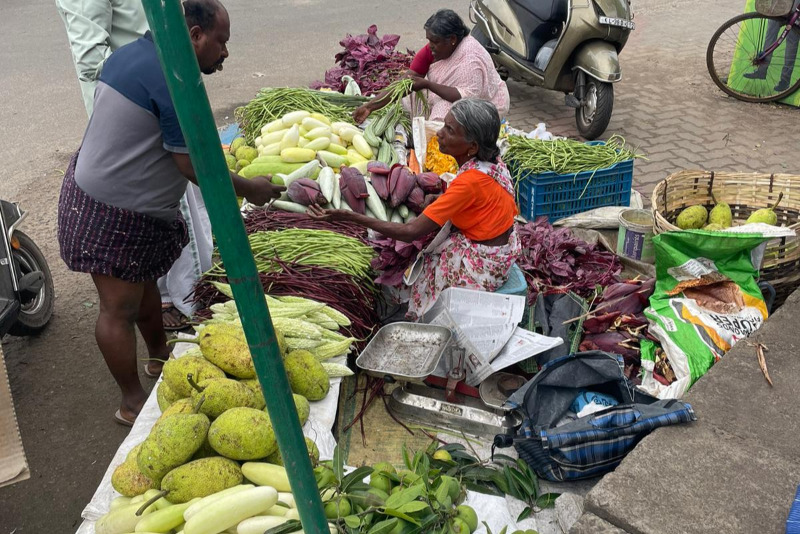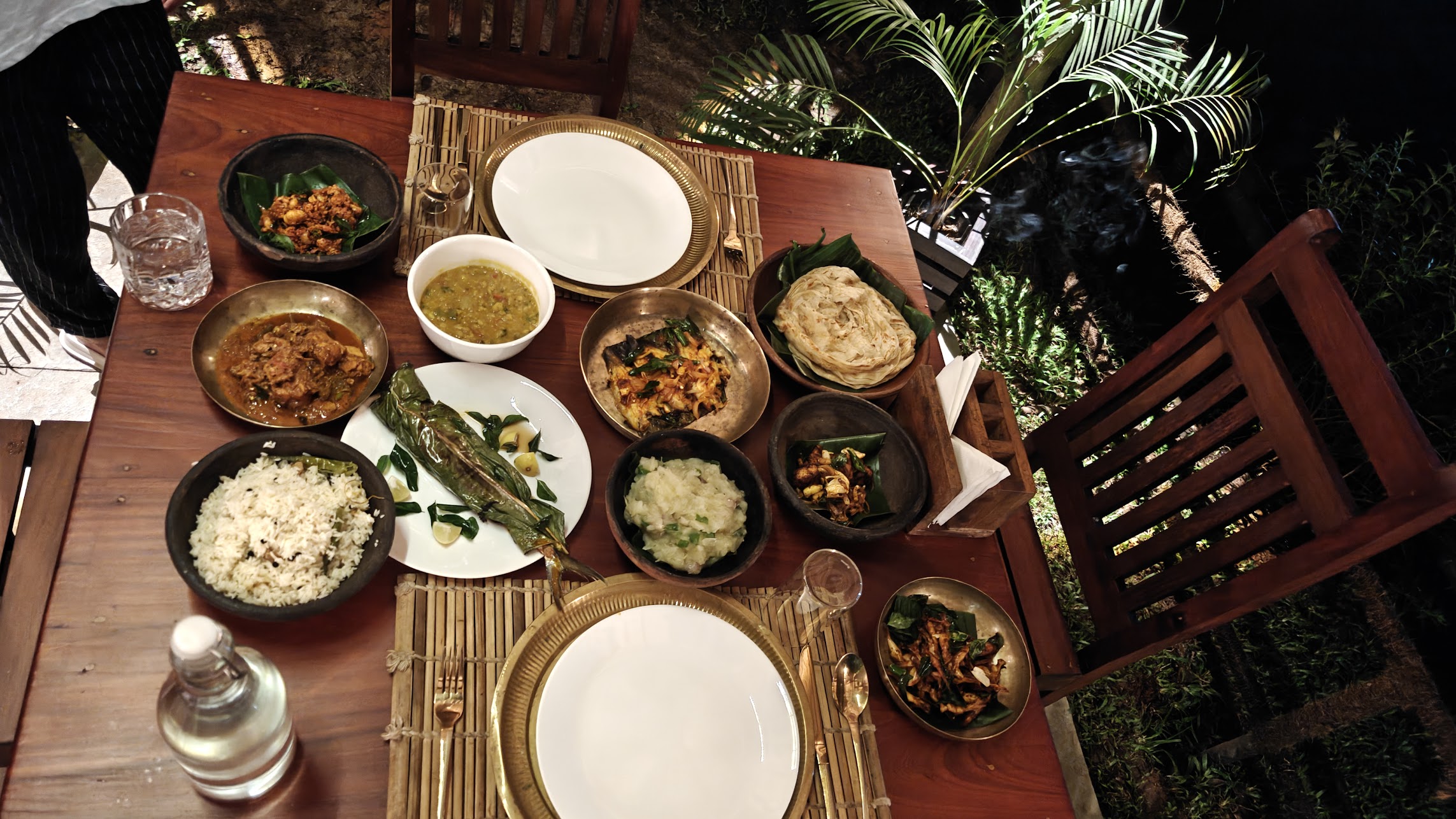Spices, Stories & Sulaimani: How Kerala Meals Create Timeless Memories at Little Chembaka
The first sip of memory

(P.C: Wikimedia Commons)
The story of a meal often begins not with food, but with feeling. At Little Chembaka in Kumarakom, it begins with a glass of Sulaimani tea. The tea arrives steaming hot, its amber glow catching the soft light of the backwaters. The scent of cardamom drifts upward, mingling with the sharper notes of cinnamon and the gentle freshness of lemon. You raise the cup to your lips, and the first sip is both sweet and spiced, soft yet bold.
It warms you in a way that is hard to explain. Perhaps it is the flavor, perhaps it is the calm of the water outside, or perhaps it is something more. As the stories feed more stories, tea times end with invitations for the next meal. But do we ever ponder what makes a meal unforgettable? Is it the taste, the stories behind it, or the people you share it with? What if we tell that in our humble place, Little Chembaka, it’s all three?
The soul of Kerala – Spices that carry stories
Kerala has always been called the Land of Spices. Centuries ago, traders sailed across oceans for a handful of pepper from these shores. Cardamom, the “queen of spices,” was treasured as much as gold. Turmeric was never just a root—it was medicine, blessing, and ritual.
Every spice in Kerala carries a story. At Little Chembaka, those stories find their way into every meal.
A simple fish curry is infused with black pepper along with the basic spices like chillies, curry leaves, and shallots, not just for heat but as a reminder of the spices that once drew the world to Malabar. A fragrant biryani holds green cardamom pods, their sweet aroma carrying memories of plantations hidden deep in Kerala’s hills. Even a pinch of turmeric connects you to the rituals of every household, where it is more than an ingredient; it is a medicine and a preservative. More than cooking, we share our meals like a story through our spices.

Stories shared over the stove
On entering the premises of Little Chembaka, as you begin to unwind, you hear stories even before catching the wafting aroma of the food being cooked by our home chef, Jesvanth.
Here, the day often begins with a walk to the farmers’ market. Guests join Jesvanth to select the freshest catch of the day, bright vegetables, and glistening herbs. Every choice is a story in itself. The small sardines glimmer like silver in the sunlight, reminding you of mornings when fishermen row into the backwaters with their nets heavy with the night’s catch. The moringa leaves and the bright green moringa drumsticks bring in the sweet, earthy smell of the breeze that flows through the moringa tree. The plump mangoes on the stall carry the smell of mango groves where summer is preserved in every fruit.

While cooking in the Wonderwerk kitchen studio, Jesvanth starts sharing the local history and folklore about the traditional Kerala meals that he had heard from his grandmother and mother. He starts with flavoring the oil with desi temperings from whole mustard seeds, sometimes cumin, bay leaves, or whole garam masala, and a dash of shallots and green curry leaves.
Our homechefs, spearheaded by Jesvanth, always try to explain the story behind using certain spices, their proportions, and how they add layers of flavor in the food being cooked. The recipe is not on paper—it is alive in his words. Cooking becomes a conversation. A tale of family, of seasons, of life in Kumarakom.
From preparation to plate – Togetherness in the kitchen
The most beautiful part is that you don’t just watch, you join and become an integral part. You may grind fresh coconut on the traditional stone, and your hands grow sticky with its sweet milk. You may crush peppercorns, feeling their sharp aroma rise to your face. You may marinate fish with turmeric and salt, learning how balance is the true secret of Kerala cuisine.
And as you stir, slice, and season, you laugh. Travelers who arrived as strangers begin to chat as if they have known each other for years. Cooking together breaks down barriers. It is not just about learning a dish; it is about sharing time, effort, and joy.
In that space, food is no longer a service. It becomes a shared creation.
The moment of memory – Dining at Little Chembaka
After the cooking session, dinner is served with starters such as thoran, fried mackerel, or jumbo prawns, accompanied by a traditional dal and chammanthi (chutney), along with a main dish of neyychoru, Kerala ghee rice. On some days, we indulge in a warm pot of Malabar Biryani, celebrating the aroma of short-grained Gandhakashala rice and farm-grown local spices like cardamom, cinnamon, cloves, star anise, and fennel. Then there’s the layered, flaky Kerala Parotta, which pairs beautifully with spicy Kerala beef fry, while tangy pickles add a spark that sets off conversations and laughter around the table.

Outside, the backwaters ripple with the late evening breeze. A nightjar calls from the trees, and the cicadas jingle. The world slows down. We cook and serve with love. The food tastes delicious, as some of you say, but what makes it unforgettable is the togetherness of the moment. The conversations, the laughter, the sense of place that ties everything together. It is not just a meal. It is a memory in the making.
The Sulaimani ending – More than just tea
And then, the ritual returns to where it began. The Sulaimani tea is poured again.
This time, it is not just the taste that stays with you. It is the story of the meal you just shared, the warmth of the people around you, the sense that something ordinary has turned into something sacred.
The sweetness of the tea balances the spices, just as memories balance joy and nostalgia. The last sip lingers, soft and steady, like the final line of a verse.
At Little Chembaka, Sulaimani is never just tea. It is the seal on the experience. A gentle closure. A reminder that food is not just about eating—it is about remembering.
Come share a table with us
Every traveler comes to Kerala with expectations of spices, flavors, and backwaters. But at Little Chembaka, they leave with something more—stories they can carry home.
Here, every spice has a history. Every dish has a memory. Every meal is a bridge between cultures, people, and time.
So, the next time you think of food, think beyond the plate. Think of the stories you will hear, the hands you will join, and the Sulaimani that will seal the moment into your memory.
Come share a table with us at Little Chembaka. Where spices tell stories, kitchens echo with laughter, and every meal becomes timeless.
